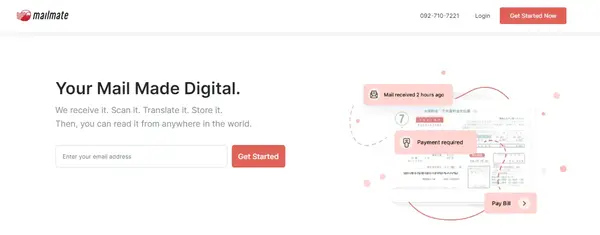Japan Digital Nomad Visa Explained: What You Need To Know

Are you a digital nomad? Do you want to work digitally in Japan in some far-flung Japanese city? Or are you a little confused?
Don’t worry—you’re not the only one. Today, we answer the common questions about the Japan Digital Nomad Visa scene and other alternatives to working digitally in Japan.
What is a digital nomad visa?

Let’s define a digital nomad first. While the definition varies from country to country, in general, a digital nomad visa allows people to legally work remotely while away from their home country.
A digital nomad visa differs from a business manager, work, and investment visa.
Many countries, including Estonia, Portugal, Barbados, and Costa Rica, offer digital nomad visas under various names.
Some jobs are better than others for a digital nomad visa, such as freelancer, software developer, content creator, and consultant. But realistically, any job can be remote if you don’t need to be there in person.
Is Japan digital nomad-friendly?
Yes, being a digital nomad is quite easy in Japan. While you can work remotely at your accommodation, plenty of coworking spaces and cafes in major Japanese cities have all your work office needs.
Does Japan have a digital nomad visa?
Yes, Japan’s digital nomad visa is now available for digital nomads whose spouses and children can accompany them.
Japan’s digital nomad visa is limited to 6 months and can not be extended. Those with this visa are also not considered regular residents, so they cannot get a residence card, which means they can not get a bank account in Japan or qualify for national health care.
Since digital nomad is a broad term, those in IT/software, digital spaces, or who work remotely online for foreign countries are eligible to apply.
Check out the Ministry of Foreign Affairs of Japan's Designated Digital Nomad visa for more information.
Japanese digital nomad visa requirements
You will need to demonstrate the follow to be eligible for for a Japan digital nomad visa:
Have a 10 million or more yen (about 65,000 USD) annual income: to demonstrate you are able to financially support yourself
Private health insurance: enough to cover 10 million yen as you will not be part of Japan’s national health care.
Additionally, you are agreeing that you will stay in Japan for 6 months.
Who can get a digital nomad visa for Japan?
Japan’s Ministry of Foreign Affairs says their digital nomad visa is for those wanting to work remotely in Japan for 6 months.
The applicant’s spouse and children can come to Japan with them within the same period.
Additionally, you must be from these regions or countries to apply for Japan’s digital nomad visa.
Australia |
Iceland |
Romania |
Austria |
Indonesia |
Serbia |
Belgium |
Ireland |
Singapore |
Brazil |
Israel |
Slovakia |
Brunei |
Italy |
Slovenia |
Bulgaria |
Latvia |
Spain |
Canada |
Lithuania |
Sweden |
Chile |
Luxembourg |
Switzerland |
Croatia |
Malaysia |
Taiwan |
Czech Republic |
Mexico |
Thailand |
Denmark |
Netherlands |
Turkey |
Estonia |
New Zealand |
United Arab Emirates |
Finland |
Norway |
United Kingdom |
France |
Poland |
United States |
Germany |
Portugal |
Uruguay |
Hong Kong |
Qatar |
|
Hungary |
Republic of Korea |
Citizens and national from these countries are eligible for Japan digital nomad visa
What is the income requirement for Japan digital nomad visa?
You will need to prove that you have an annual income of 10 million yen with appropriate documentation such as tax payment certificates or an income certificate that will serve as proof.
That is between $60,000 to $65,000 USD.
How to apply for a the Japan digital nomad visa?
Here is what you need to apply for Japan’s digital nomad visa:
Valid passport
Private health insurance
Documents to prove the relationship between the applicant and their spouse or children
Copy of the applicant's spouse or children's passport
If you do not have a COE, you will need:
Description of the intended activities (word doc): to explain your planned activities and period of stay
Proof of annual income of 10 million yen or more—a tax payment certificate, income certificate, and employment contract—would suffice
For private health insurance, having a copy of the coverage certificate, policy summary, and compensation documents would help demonstrate the type of coverage you will have in Japan.
Bring these documents to your nearest Embassy or Consulate-General of Japan.
How long is Japan’s digital nomad visa good for?
The digital nomad visa in Japan is valid for 6 months. Currently, no extension will be granted to extend this period.
The applicant must wait 6 months to reapply for the same digital nomad visa.
Alternatives to Japan’s digital nomad visa
Generally, always ensure your work in Japan matches your visa category.
To work outside your work category, you need to apply for “Application for Permission to Engage in Activity Other Than that Permitted under the Status of Residence Previously Granted” (資格外活動許可申請書しかくがいかつどうきょかしんせいしょ).
Here are other common working visa options that Japan offers.
1. Working Holiday Visa
If you want a short-term work visa in Japan, then their Working Holiday Visa can work for you.
There are a couple of limits to this visa, though. In general, your home country and Japan must have a Working Holiday agreement, be between a certain age range (18-30), and have enough funds to support your stay.
While you can work as many hours as you like , the main focus of this visa is “holiday,” and is designed for those to travel around while working smaller jobs to help pay for their expenses.
2. Work Visa
To stay in Japan longer, then the Work Visa is the most appropriate follow-through.
The most popular Work Visa in Japan is the "Engineer/Specialist in Humanities/International Services " which covers a lot of job categories such as teaching, engineering, journalism, and other specialized fields.
Japan’s Work Visa generally requires you to be sponsored by a Japanese employer, which means that you need to have a job offer from a Japanese company before applying for the visa. This sponsorship makes Japan’s Work Visa process much easier as they can help submit specific documents and confirm your employment details.
Always check the Ministry of Foreign Affairs of Japan’s website for general visa information and up-to-date information on this visa.
3. Business visa in Japan
Japan offers 4 different type of business visa that makes great alternatives to the Japanese digital nomad visa if you are thinking about starting a business in Japan:
The startup visa is a way for the Japanese government to increase foreign entrepreneurs in Japan and have more relaxed requirements in city regions and cities such as in Tokyo and Fukuoka.
4. Intra-company transferee visa
The intra-company transferee (ICT) falls under the long term working visa and it is a great visa option for those looking to transfer within the same company but at their office in Japan.
For this visa, the employee would need to obtain a specific specific ICT visa or permit to legally work in the host country. Your company should be able to handle the transfer and visa requirements.
Compliance with Japanese taxes
Depending on your visa, working in Japan requires knowledge of Japanese tax laws.
We recommend consulting with a tax professional who specializes in international taxation so that you comply with Japanese tax law and your home country's taxes.
Simplify your digital nomad experience in Japan with MailMate
One of the common struggles of being a digital nomad is that without a fixed address, receiving and handling physical mail can be a logistical challenge.
So if you want to receive your mail and important paper digitally with a Japanese address, then MailMate has got you covered.

MailMate is a digital mail management service that will streamline your remote working life by providing you with a physical mailing address and making it possible for you to receive all your mail online, anywhere in the world.
You can share important documents with your other team members and MailMate can even help pay your bills, ensuring that you never miss a payment.
MailMate will give you more time to explore, network, and work in Japan.
Community and networking opportunities in Japan
Working in Japan allows you to build a community and network with international people in Japan.
Coworking spaces in many Japanese cities offer office space and networking events to build up the coworking space community. There are also many networking events in Japan, and using websites such as Meetup.com, Eventbrite, and DoorKeeper can make finding these events easier.
Frequently asked questions
Does Japan have a Digital Nomad Visa?
Japan recently announced and released its digital nomad visa. It is generally for those living and working remotely in Japan for 6 months. One of the main requirements is to provide proof of at least a 10 million yen income (about $60,000-$66,000) with private health insurance.
Can I work remotely in Japan on a tourist visa?
Working remotely while in Japan for sightseeing and tourism is generally fine. However, working remotely with a Japanese company on a tourist visa violates Japan’s visa regulations.
Can digital nomads get Japanese residency?
Those with a Japanese digital nomad visa can not get Japanese residency as part of its visa regulation. Digital nomads can get Japanese residency with other visa options from Japan.
How do I qualify for a digital nomad visa?
Various countries have different qualifications, but you must generally be compatible with remote work, earn a specific monthly income, agree not to seek local employment, and have health insurance that can cover your stay.
How much monthly income is required for digital nomad visa?
The monthly income for a digital nomad visa is a little over 830,000 yen per month or about $4,000 to $5,500 USD. In total, however, you will need to demonstrate an annual of 10 million yen ($60,000 to $65,000 USD).
To conclude
With the Japan Digital Nomad Visa now available, working and living in Japan is a once-in-a-lifetime experience you won’t want to pass up.
Spending too long figuring out your Japanese mail?
Virtual mail + translation services start at 3800 per month. 30-day money-back guarantee.

